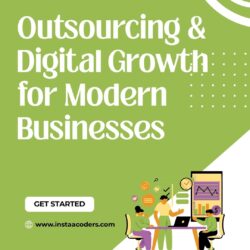In today’s digital-first marketplace, businesses are increasingly turning to data-driven methodologies to generate Highly Qualified B2B Leads. The era of guesswork in marketing is long gone. Data has become the foundation of effective decision-making, allowing companies to identify high-value prospects, understand their intent, and optimize campaigns for precision targeting. By leveraging data strategically, organizations can enhance the quality of their leads while maintaining scalability and efficiency.
The Importance of Data in B2B Lead Generation
Data serves as the backbone of modern lead generation strategies. It enables marketers to uncover insights about audience behavior, preferences, and purchasing intent. High-quality data eliminates the inefficiencies of targeting unqualified prospects and ensures that marketing efforts are directed toward audiences most likely to convert. Data-driven lead generation not only improves ROI but also strengthens brand credibility and customer trust.
The Role of Lead Quality in Business Scalability
Scaling growth is not just about increasing the number of leads; it is about enhancing their relevance and readiness to buy. Highly qualified B2B leads match your ideal buyer persona, display clear purchase intent, and have decision-making authority. These leads allow organizations to scale efficiently without inflating marketing costs or overburdening sales teams with uninterested prospects. A focus on lead quality ensures growth that is sustainable and ROI-positive.
Strategically Defining Your Ideal Customer Profile
A scalable growth model begins with a clear Ideal Customer Profile (ICP). This profile includes firmographic details such as company size, revenue range, industry, and pain points. By targeting prospects that align with your ICP, businesses eliminate wasteful marketing efforts and enhance lead quality. Strategic ICP development ensures every lead generated contributes toward long-term scalability rather than one-time transactions.
Understanding Key Data Types for Lead Generation
Successful B2B marketing relies on several types of data, including demographic, firmographic, technographic, and intent-based information. Demographic data defines who the buyer is, firmographic data identifies company characteristics, technographic data highlights the technology stack a business uses, and intent data reveals when prospects are actively looking for solutions. Combining these data layers allows for more accurate targeting and refined segmentation.
Using Predictive Analytics to Identify Potential Buyers
Predictive analytics helps marketers forecast which prospects are most likely to become customers. By analyzing historical sales data, engagement trends, and behavioral patterns, predictive models can score leads based on conversion probability. This data-driven approach enables teams to focus their resources on the most promising opportunities, ensuring faster sales cycles and improved win rates.
Enhancing Targeting with AI and Machine Learning
Artificial Intelligence and machine learning have revolutionized B2B marketing. These technologies analyze vast datasets to detect hidden patterns and correlations that humans might overlook. AI-driven targeting tools can segment audiences dynamically, identify new high-potential accounts, and personalize outreach efforts. By automating data analysis, marketers can optimize lead generation at scale while maintaining accuracy and efficiency.
Leveraging Intent Data for Timely Engagement
Intent data offers visibility into buyer research behavior, revealing when prospects are in the market for specific solutions. By tracking content consumption, keyword searches, and engagement signals, marketers can engage prospects at the ideal stage of their journey. Acting on these insights ensures that outreach is relevant and timely, which increases the likelihood of conversion and improves campaign responsiveness.
Integrating CRM and Marketing Automation Platforms
Integration between CRM systems and marketing automation platforms allows businesses to streamline their lead generation process. This synchronization ensures that data flows seamlessly between marketing and sales teams, improving communication and alignment. Automated workflows help nurture leads through personalized communication based on behavioral triggers, ensuring that prospects remain engaged throughout the buying process.
Data Enrichment for Greater Accuracy
Data decay is one of the biggest challenges in B2B marketing. As business information changes frequently, regular data enrichment is essential to maintaining accuracy. Updating contact records, adding missing details, and validating information ensures that marketing outreach remains effective. Accurate data improves segmentation, increases engagement rates, and prevents wasted effort on irrelevant leads.
Building a Single Source of Truth
A unified data management system helps organizations centralize and manage customer insights efficiently. By consolidating data from various sources such as CRMs, analytics tools, and social media platforms, businesses create a comprehensive view of each prospect. This single source of truth enables marketers to design more cohesive campaigns and ensures consistent messaging across all channels.
Measuring Lead Quality Through Analytics
Analytics tools allow marketers to measure lead quality based on engagement levels, conversion rates, and pipeline velocity. Monitoring metrics such as cost per lead, lead-to-opportunity ratio, and average deal size helps assess the effectiveness of marketing efforts. Regular analysis of these metrics ensures that campaigns remain data-informed, scalable, and aligned with organizational goals.
Data Privacy and Compliance Considerations
As businesses increasingly rely on data for lead generation, maintaining compliance with data privacy regulations is critical. Adhering to standards such as GDPR and CCPA builds trust with prospects and safeguards company reputation. Transparent data handling practices also foster stronger relationships with customers, reinforcing credibility in every interaction.
Combining Human Intelligence with Data Insights
While data and technology drive precision, human intelligence adds context and creativity to lead generation. Skilled marketers interpret data insights to design meaningful campaigns that resonate emotionally with target audiences. This balance between data science and human understanding ensures that marketing remains authentic, relevant, and relationship-focused.
Scaling Lead Generation with Continuous Optimization
Scalability in B2B marketing depends on continuous optimization. Regular testing of targeting models, audience segments, and campaign messages ensures that data-driven strategies evolve with market changes. Continuous improvement supported by analytics leads to sustainable growth, higher-quality leads, and better customer experiences across the funnel.
About Us
Acceligize is a global B2B demand-generation and technology marketing firm specializing in performance-driven lead generation solutions. Their services include content syndication, account-based marketing, intent and install-based targeting, and custom campaign strategies. Leveraging data science, technology, and human intelligence, Acceligize helps clients reach high-quality audiences and drive conversions across the full marketing funnel.




